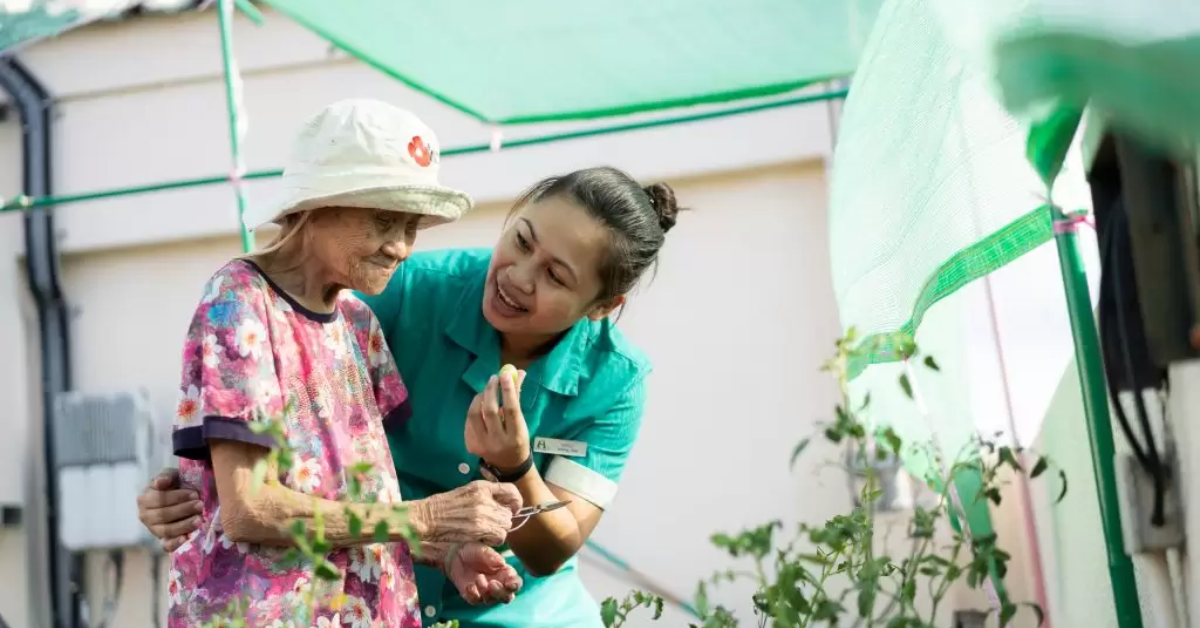Elderly Home Services in Singapore: A Growing Need for Compassionate Care
In recent years, the demand for quality Elderly Home services in Singapore has grown significantly. As the nation experiences an aging population, families are increasingly seeking reliable and compassionate care options for their elderly loved ones. The role of an elderly home is more than just a place for seniors to reside—it has evolved into a crucial component of eldercare that focuses on dignity, health, and emotional well-being. With a blend of professional medical support, daily assistance, and social engagement, these homes are becoming an essential solution for many families across Singapore.
The Aging Population in Singapore
Singapore is one of the fastest-aging societies in Asia. According to official statistics, by 2030, it is projected that one in four Singaporeans will be aged 65 or older. This demographic shift poses significant challenges not only for families but also for the broader healthcare system. Many elderly individuals face chronic illnesses, reduced mobility, and cognitive decline, requiring specialized attention and care. While some families opt to care for their elderly members at home, the reality of modern life—career obligations, space limitations, and lack of medical knowledge—can make this unsustainable. That’s where the role of an elderly home becomes vital.
What Makes a Good Elderly Home?
Choosing an elderly home is a significant decision for any family. Several key factors contribute to the quality of care and comfort provided:
-
Professional Medical Care: A good elderly home is staffed with trained nurses, caregivers, and healthcare professionals who can manage both day-to-day needs and emergency medical situations. Many homes also have visiting doctors, physiotherapists, and specialists.
-
Safe and Comfortable Environment: Seniors need a safe living space tailored to their physical needs. This includes non-slip flooring, handrails, accessible bathrooms, and emergency alert systems.
-
Nutrition and Meals: Balanced, nutritious meals prepared to accommodate specific dietary restrictions or health conditions play a significant role in maintaining the health of elderly residents.
-
Activities and Social Engagement: Loneliness and depression are common among seniors. A well-run elderly home will have scheduled activities like music therapy, group exercises, and games that keep residents mentally and socially active.
-
Personalized Care Plans: Every resident is unique, and their care should reflect that. The best facilities take time to understand each individual’s needs, routines, preferences, and medical history.
Why Families in Singapore Are Choosing Elderly Homes
In Singapore’s urban setting, many families live in high-rise apartments where space is limited. Moreover, dual-income households are the norm, leaving little time for round-the-clock caregiving. These social factors are compelling many families to consider elderly homes as a practical and compassionate solution.
Additionally, the perception of elderly homes has changed. Once seen as a last resort, they are now viewed as specialized environments where seniors can receive professional attention and continue to lead fulfilling lives. Quality elderly homes in Singapore not only provide care but also empower the elderly to maintain their independence where possible.
Different Types of Elderly Home Services
Singapore offers a range of elderly home options, tailored to meet diverse needs:
-
Nursing Homes: These are suited for seniors who require constant medical supervision. Nursing homes provide skilled nursing care, rehabilitation services, and assistance with daily tasks such as feeding, bathing, and medication management.
-
Assisted Living Facilities: Ideal for seniors who are relatively independent but may need help with some daily activities. These homes provide a balance between autonomy and support.
-
Residential Care Homes: Smaller, more personal settings that offer home-like environments with basic support services. These are typically more intimate and are well-suited for those who do not require intensive medical care.
-
Dementia and Alzheimer’s Care Homes: Specially designed for seniors with memory-related illnesses, these homes offer tailored programs, secure environments, and specialized staff.
The Role of Technology in Modern Elderly Homes
With Singapore’s Smart Nation initiative, technology is increasingly being integrated into eldercare. Many elderly homes now feature high-tech solutions such as:
-
Telemedicine: Residents can consult with doctors remotely, reducing the need for hospital visits.
-
Health Monitoring Devices: Wearables that track heart rate, blood pressure, and sleep patterns help caregivers monitor residents more effectively.
-
Cognitive Games and Tools: Digital platforms are used to engage seniors mentally, especially those with dementia or early cognitive decline.
-
Automated Safety Systems: These include fall detection sensors, emergency call buttons, and motion-activated lighting.
Such advancements not only enhance the quality of care but also provide peace of mind to families knowing their loved ones are in a secure, well-managed environment.
Cost Considerations and Government Support
One of the common concerns about elderly home services in Singapore is affordability. Costs can vary widely depending on the level of care required, location, and type of facility. Monthly fees can range from a few hundred dollars in subsidized homes to several thousand in private institutions.
However, the Singapore government offers several schemes to support families:
-
ElderShield and CareShield Life: Insurance schemes that provide payouts for severe disability.
-
Pioneer Generation Package and Merdeka Generation Package: These provide healthcare subsidies for seniors.
-
Medisave and Medifund: These national savings and endowment schemes can be used to offset care expenses.
Understanding these financial aids can make elderly home care more accessible to a wider segment of the population.
The Emotional Aspect of Transitioning to an Elderly Home
Moving a loved one into an elderly home is an emotional decision. Feelings of guilt, concern, and anxiety are common among family members. To ease this transition, it’s important to involve the elderly person in the decision-making process whenever possible. Visiting several facilities, speaking to staff, and taking trial stays can help ease apprehensions.
Once the move is made, maintaining regular visits, phone calls, and emotional support can make a significant difference in the resident’s well-being. Elderly homes often encourage family involvement in activities and special occasions, reinforcing that the facility is not a place of abandonment, but a supportive community.
Conclusion: A Compassionate Choice for the Future
As Singapore’s population continues to age, the importance of quality elderly home services will only grow. These facilities are not just residences; they are vibrant communities offering holistic care, medical support, and emotional well-being for our seniors. With a thoughtful approach, families can find the right home that respects the dignity of their elderly loved ones while ensuring their safety and comfort.
Choosing an elderly home in Singapore is not about relinquishing responsibility—it’s about ensuring your loved ones receive the care they deserve in a nurturing and professional environment. With evolving services, supportive technology, and a compassionate outlook, elderly homes are becoming an essential and respected part of Singapore’s healthcare landscape.







